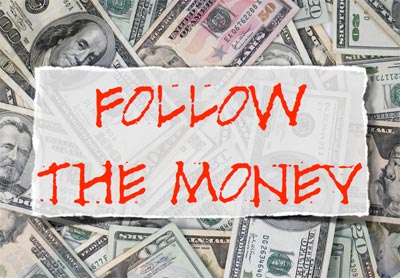
The American people might be surprised to learn that for the past 20 years a handful of lobbyists and lawmakers—mostly from states with mining and metal-processing interests—have been pushing a proposal to take away dollar bills, and force the public to use metal coins instead.
The most recent attempt is the Currency Optimization, Innovation and National Savings (Coins) Act, sponsored by Sen. Tom Harkin (D., Iowa). This proposed law would prohibit the issuance of dollar bills after five years and replace them with dollar coins. The otherwise obscure piece of legislation was recently catapulted into the spotlight when Coins Act co-sponsor, Sen. John McCain (R., Ariz.) made the somewhat dubious claim that switching to a dollar coin would mean higher-denomination tips for strippers.
The recurring controversy over paper dollars versus metal coins is the result of the government’s monopoly on the production of currency.
The more serious Coins Act proponents have seized on the continuing budget battle in Congress, arguing that the legislation would save billions supposedly being wasted on the replacement of worn-out dollar bills. They’ve latched on to a 2011 Government Accountability Office study that projects a multibillion-dollar “net benefit” from the switch to dollar coins.
If you buy the GAO’s analysis, which is based on questionable assumptions, you might conclude that switching to a dollar coin would improve the federal government’s bottom line. But for all the GAO’s calculations, the report’s findings are negated by its admission that the public is unlikely to accept the change unless they are literally given no choice—which, of course, is precisely the point of the Coins Act.
Reliable polling data show that the vast majority of Americans prefer the dollar bill to dollar coins. The Federal Reserve already holds over a billion-dollars worth of $1 coins in storage due to the fact that people simply don’t want to use them.
The proposed legislation reeks of some of the most common problems with state-owned monopolies. The advocacy group promoting the Coins Act has the same address as PMX Industries, a South Korean firm located in Cedar Rapids, Iowa, that supplies the U.S. Mint with the metal used to make dollar coins. Along with its CEO, Jin Roy Ryu, the company in 2011 donated a combined $500,000 to the Harkin Institute of Public Policy at Iowa State University (now at Drake University) named after the senator.
The recurring controversy over paper dollars versus metal coins is itself the result of the government’s monopoly on the production of currency. The Federal Reserve Act of 1913 authorized the production of the first $1 Federal Reserve Note, otherwise known as the dollar bill (although the U.S. had circulated various $1 notes prior to 1913). In the 100 years since the Fed issued its first $1 notes, the U.S. government has held on tightly to this monopoly, and let the special interests involved battle within the Beltway over its future.
There is a solution to this battle: privatize the production of the dollar.
No, I am not talking about abolishing the Federal Reserve and switching to a private free-banking system. I simply mean allowing banks to produce private notes denominated in U.S. dollars. The government can keep churning out dollar coins in the vain hope that they catch on, and consumers can decide which they prefer.
If the failure of the Susan B. Anthony and Sacagawea dollar coins are any guide, consumers will probably stick with the greenback. Either way, moving to the private production of $1 notes, or at least allowing banks to compete with the federal government, would certainly generate actual savings.
It might seem far-fetched, or at least novel, to allowing banks to produce their own $1 notes, but in reality it is neither. Prior to the 20th century, private production of government currency was commonplace. Today, it is still the norm in Hong Kong, Macao, Northern Ireland and Scotland.
In Hong Kong, for example, three private banks are licensed to produce distinct bank notes denominated in Hong Kong dollars. These banks act as agents of the Hong Kong Monetary Authority because they must hold reserves at the Hong Kong Monetary Authority equal to the value of their notes in circulation. In short, there are no fiduciary, or unbacked, notes in circulation. The result for Hong Kong is a stable currency whose notes are produced by private banks.
The public might also be surprised to learn that thanks to a little-known provision of the 1994 Community Development Banking and Financial Institutions Act, the private production of $1 notes is perfectly legal. So, why not replicate Hong Kong’s success? If private banks were to produce notes here, the Federal Reserve would retain its authority to control the money supply, and we might actually realize some of those elusive “savings” touted in the GAO’s report.
Let the government keep its monopoly over coins, but put the fate of the greenback in the hands of consumers.
Author Steve H. Hanke

0 responses on "To Make Sense of the Coins Act, Follow the Money"